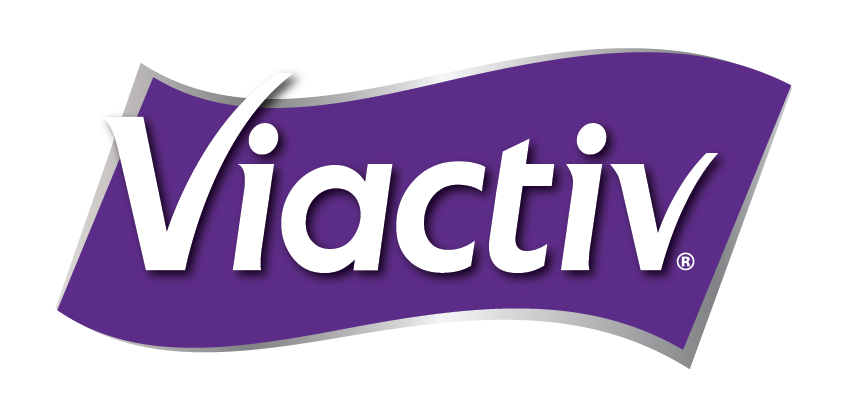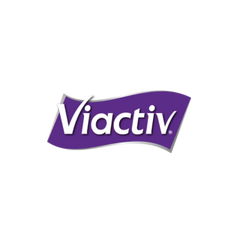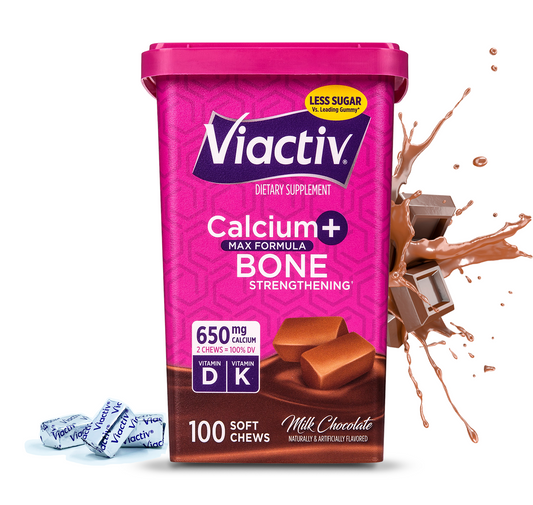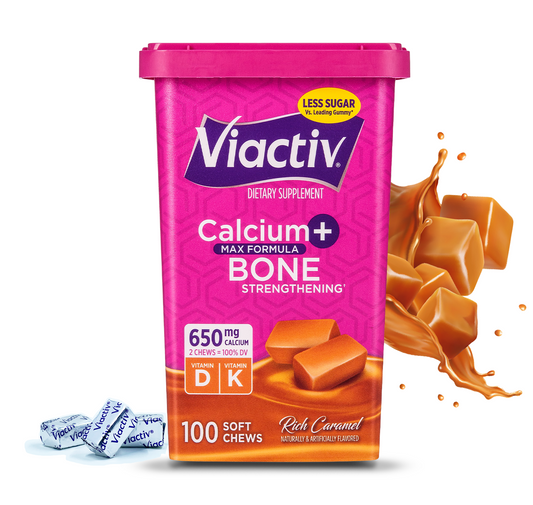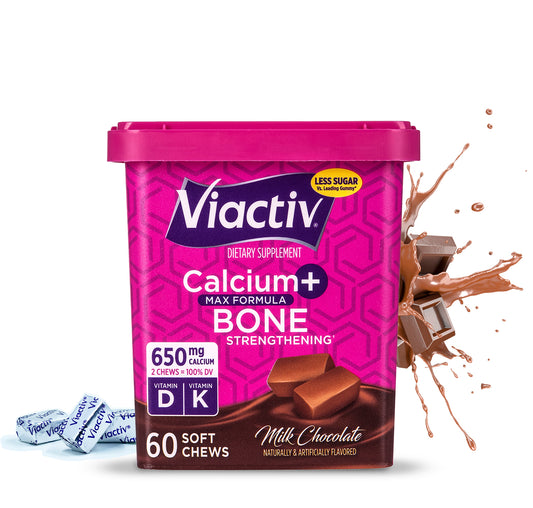Menopause marks a major transition, not just hormonally, but also for bone health. The drop in estrogen that occurs during menopause accelerates bone loss, making women more vulnerable to osteoporosis and fractures. In fact, according to the National Institutes of Health, women can lose up to 20% of their bone density in the first five to seven years following menopause.
But there is good news. There are steps you can take (and tips you can pass along to your daughters!) to help protect bones and reduce fracture risk.
Get enough calcium and vitamin D: Calcium is essential for bone strength and vitamin D helps your body absorb it. Aim for 1,300 mg of calcium per day before age 50 and 1,200 mg after 50. Vitamin D recommendations range from 600 to 800 IU per day, but your doctor may recommend more depending on your needs. Viactiv Calcium Soft Chews[AO1] , an ob/gyn recommended brand, contain 650 mg of calcium per chew plus 500 IU of vitamin D, with two chews per day recommended (take each chew at separate times since calcium best absorbs in smaller amounts).
Start and stay active with weight-bearing and strength exercises: Cardio is great for overall health, but activities like walking, dancing, or lifting weights stimulate bone formation and help maintain density. Consistency matters more than intensity. Find a routine you enjoy and stick to it.
Avoid smoking and limit alcohol: Both smoking and excessive alcohol consumption can weaken bones and interfere with calcium absorption.
Pay attention to hormones earlier: Talk to your healthcare provider about how perimenopause and menopause can impact bone health, especially if there is a family history of fractures, osteopenia and osteoarthritis. Perimenopause can begin as early as the 30s, which means fluctuating estrogen levels that impact bones. In some cases, hormone therapy or other medications may be recommended to protect bone density, so don’t wait until menopause to start the discussion with a doctor.
Get a bone density test: A DEXA scan can help assess bone strength and detect early bone loss. The earlier you know, the more proactive you can be in prevention. While it’s not typically done on younger women, you may want to talk to your doctor if there is a family history of fractures and osteo-related issues.
Building and maintaining strong bones through nutrition, exercise, and healthy lifestyle choices gives you an added defense against bone loss as you age. It’s never too late to start, and the sooner you begin, the better.
